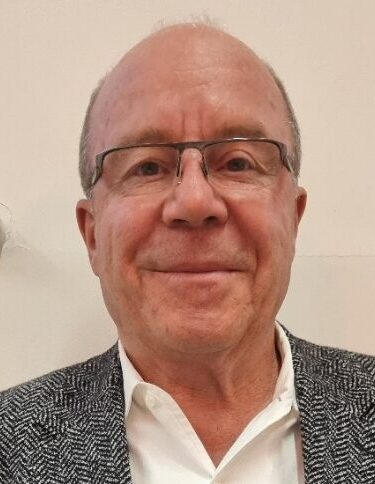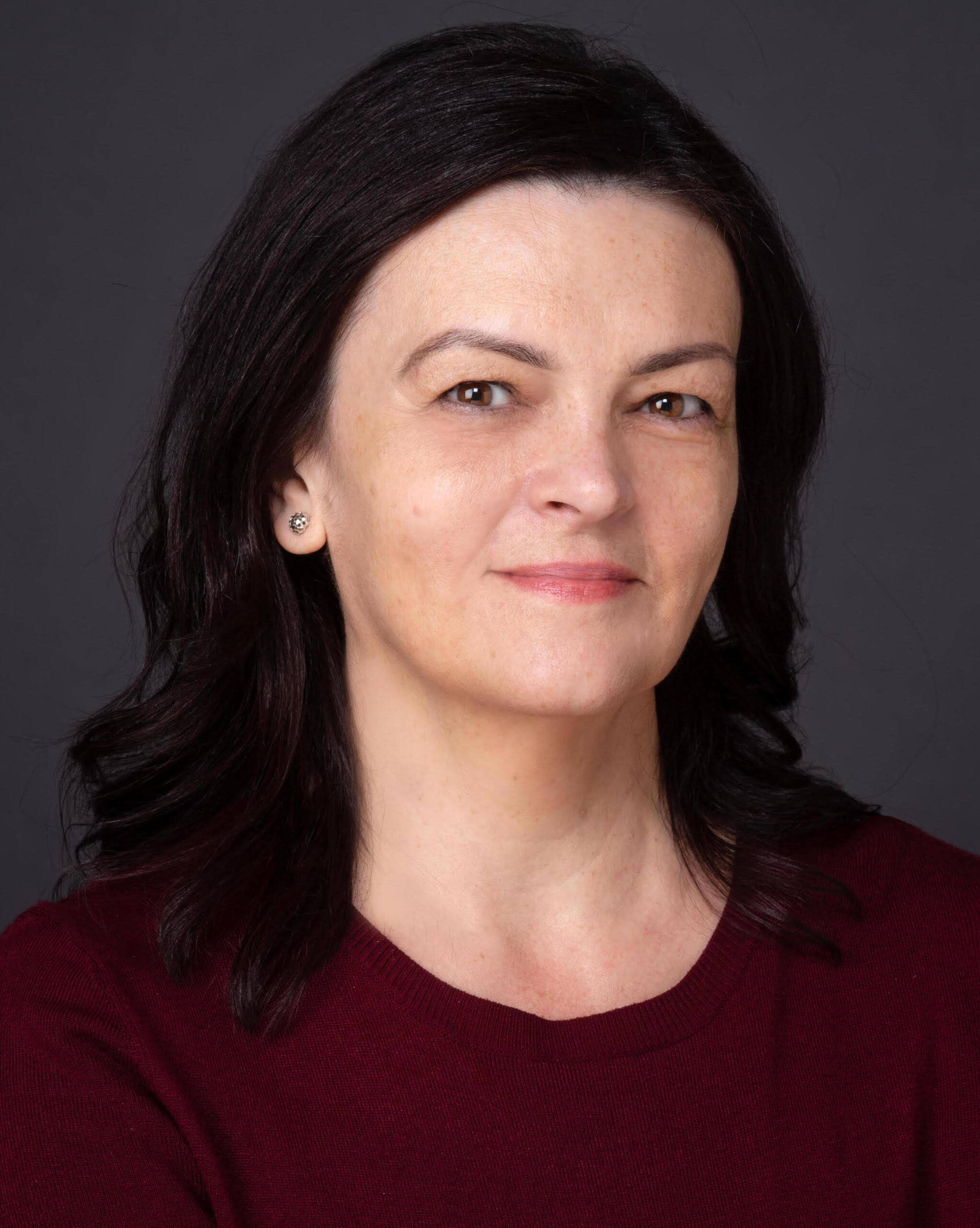PRACTITIONERS INTERVIEWED
interviewed by Cristina Savin

When ex-medical translator Stephen F Nagle commented that a translation of a Rilke poem wasn’t very good, he was challenged to improve on it. Taking up the challenge profoundly changed both his career and his life, as he tells fellow literary translator and In Touch Editorial Committee member Cristina Savin.

Cristina Savin (CS): How did you start as a literary translator, and what genre(s) do you translate?
Stephen F. Nagle (SN): I worked for many years as a technical and medical translator in Germany before embarking on a corporate career here at home in Melbourne. I made friends with a literary publisher who mentioned to me how dearly she loved the poetry of Rainer Maria Rilke, which she read in translation as she had no German. I read the same translation and commented on how poorly executed I thought it was. She challenged me to do a better translation of Rilke’s First Elegy, which is notoriously difficult. Anyway, my version must have been to her satisfaction, as that lady is now my wife.
CS: How do you prepare for a literary translation? Do you use any particular strategies?
SN: I’ve mainly translated the poetry of Rainer Maria Rilke and Paul Celan, both of whom are modernist poets. To prepare, I first read widely and deeply on the historical period in which the authors wrote, and on the history of the writers who influenced them. In the case of Celan and Rilke, this means looking at the roots of modernism, which begins in the early 19th century with the French. I also familiarise myself with the poets’ lives and the phases they were going through when they wrote each collection of their poetry. Especially important is reading their correspondence with lovers or close friends, as this can hint at their mood or disposition. Contemporaneous literary criticism will also provide invaluable insight into the artistic milieu in which the poets lived and the major influencers on their work. Reading various other translations is essential, but more important is using a top-grade dictionary which gives special regard to syntax, style and idiomatic usage. I use the 1972 revised edition of Wildhagen and Héraucourt’s German–English dictionary.
CS: You’ve lived in Germany and Switzerland and have chosen the poetry of Rilke and Celan. What distinctive aspects of their writing and literary styles have inspired you as a translator?
SN: Both Rilke and Celan grew up speaking German in minority enclaves – Rilke in Prague and Celan in Czernowitz, Romania. German was the language of culture in both the Austro-Hungarian Empire of Rilke’s youth, and the long-established Romanian Jewish community in which Celan grew up. It was not the language of the street. German then became a magnificent, almost exotic tool for both poets to use in expressing their poetic beings.
Rilke and Celan both wrote an idiosyncratic German, using an artistic flair and a freedom with the language which attracts me from a poetic point of view. Speaking German as a second language, I also enjoy the sound and the rhythm of German, and the ability of the poet to use declension of word endings to create rhyme, while simultaneously creating oblique word patterns without obscuring meaning.
Rilke wrote in perfect iambic metre and his uncanny ability to find words to rhyme, without losing gravitas, is one reason he was so popular during his own lifetime. His poetry was entertaining and heartfelt. It was also ‘modern’ and thus fashionable in the early 20th century. Celan created his own words – not by utilising the common practice of stringing words together in German, but by coining absurd or surreal words to create striking images with which to illuminate his poetic dialogue.
What attracts me to both poets, then, is their use of language – of individual words – as poetic juggling balls. Rilke is like an impressionist painter, every word is like a brushstroke; Celan is much more like an abstract expressionist, leading the reader into undefined spaces through invented expressions that evoke raw emotions. So, to translate these poets one must take the freedom to seek expressions in English which reflect the avant-garde attitude each poet had to art in his own particular age.
I’ve translated some Rilke poems with rhyme; for others this is impossible: the translation doesn’t sound like Rilke. Emulating his metre is also hard, but Rilke without metre is not right, so one needs to keep practising.
The most difficult thing about translating Celan is getting to the heart of the matter. His poetry is epochal in dealing with World War II, so sensitivities are high, and his erotic and love poetry is deep, sometimes dark. I think an ‘anything goes’ method of translating Celan is appropriate. To be faithful to him is to reproduce the depth of the wordplay surrounding the neologisms. The endeavour is to emulate his poetics, to treat poetry as the highest form of language. A difficult task, but a good reason to translate.
CS: I’m curious about the most enriching experience you’ve had in translating poetry so far. And would you share with our readers the poem that has moved you the most?
SN: The most enriching experience I’ve had in translating poetry is researching Paul Celan. When I first translated his poems, I read his speeches and correspondence and was astounded by the depth of his commitment to poetry and the painstaking effort he put into his art – these taught me a lesson in perseverance.
Celan lost both his parents to the Nazis in the most brutal way, in his early twenties. He was subjected to trumped-up charges of plagiarism by a bitter person, which he interpreted as a blatant form of anti-Semitism. He also suffered from bouts of mental illness. Yet throughout these traumas he read, and he read, and he took notes. His library is archived at Marbach in Germany and contains almost 5,000 titles, many with extensive notations. His enormous breadth of knowledge across philosophy, religion and literature is really remarkable, and is distilled in his poetry, so researching, reading and translating Celan was a most enriching experience for me. And the poem that has moved me the most? That’s Rilke’s Song of the Woman to the Poet. [see below]
Song of the Woman to the Poet
Look, how everything unfolds – it’s in our nature;
For we are nought if not such bliss divine.
What began in an animal as darkness and as blood,
Evolved in us into a soul, now crying out
continues, as a soul. And it cries out for you.
But you cannot perceive it more than merely
As if it were a landscape: soft and without greed.
And therefore we conclude, it is not you,
to whom it cries. But are you not the one, the man
in whom we lost ourselves, totally?
And do we grow wise, learn more in any other man?
We have been forsaken by the infinite
But you remain, you, mouth, exist so we can hear
Of ourselves, through you, through your existence.
Rainer Maria Rilke (SN’s translation)
CS: Translators are quite often invited to talk about their work as translators. I’d like to look at this differently and invite you to share with us a little bit about your life as a translator.
SN: Anything to do with literature means reading widely and deeply, so my working life has always revolved around books. When I translated medical texts I collected specialist dictionaries, which I still have. Translating Rilke and Celan has meant hunting down collections of their poetry and biographical material. I’m a book collector and I like to have the physical books in my library, so my study is where I spend a lot of my life. The internet has changed the availability of material enormously, however, as one no longer needs to physically visit the university library to access journals – where a wealth of critical material on modernism and poetry is available – now that they are online. Needless to say, a translator must have command of their own language, so reading English literature has been a constant in my life, as has reading widely in German over the past 40 years.
CS: And two final questions. First, can you name up to three translators who have influenced you?
SN: James McGowan’s translations of Charles Baudelaire are exemplary – they are poems in their own right. Enid Rhodes Peschal’s translations of Rimbaud are equally good. And Robert Fagles’s translations of the Homeric epics are probably the epitome of English poetic translations, and a must read/study for any literary translator of poetry.
CS: And last, what one piece of advice would you give to an aspiring literary translator?
SN: Spend a few years concentrating on one or two authors, and always use dictionaries to double-check for alternatives to your first translation of a word where it is not obvious.
CS: Stephen, thank you for your time today, and for sharing a little of your life as a translator with us.
The AALITRA Review recently published an article by Stephen Nagle on translating the work of Paul Celan. You can read it here.


